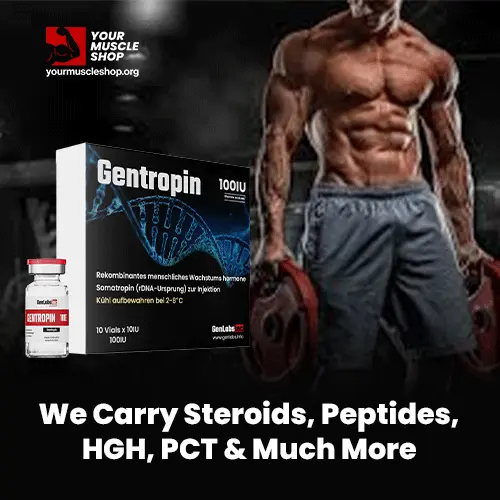If you are looking to improve your body composition (build muscle), enhance your fitness level, and just otherwise increase your overall health standing, getting in enough protein on a day to day basis is going to be vital to success.
Protein is the one nutrient that provides the building blocks upon which all your various body cells are made from, so not one that you can afford to be falling short in. But yet, many people do struggle on a day to day basis to get what they need, and then reap the consequences because of it.
Not only do you need to make sure that you get enough protein, but you need to be aware that not all protein varieties are created equally. Many will opt to use a protein powder as a way to get their needs met more effectively and these definitely can work well for increasing your total intake, but you must choose the protein variety wisely.
It's important to distinguish these differences in protein sources as each will have varying degrees of effect on the body. For example, which protein sources are rapidly absorbed by the body? Which ones take longer to absorb? The answers to these questions will help you plan your protein timing and intake which as we all know, make all the difference in the world. Also, knowing which type of protein sources are optimal for your goals and objectives will help you choose the type of supplements you need.
Let's go over the main types of protein powders that are available and how each one stacks up so that you can make a more informed decision.
Whey Protein Powder
The very first type of protein powder that you will likely come across is whey protein powder. This is the most commonly utilized protein and in itself has a few variations.
Whey concentrate protein powders are cost effective proteins and are going to digest at a moderate speed, while providing you a number of immune boosting benefits. Whey protein powder contains a substance called glutathione, which has very positive effects on your immune system strength. Using this regularly can therefore help you feel healthier on a day to day basis and help to boost your ability to ward off common colds, flu's, and other invading bacteria and viruses trying to enter your system.
Furthermore, whey protein powder mixes very easily and comes in a wide variety of flavors making it an easy addition to your diet plan. Whey concentrate is generally offered at most grocery stores, bulk food stores, drug stores and health food stores.
Another type of whey protein powder whey isolate protein powder is one that is going to be rapidly digesting, so more designed to be used around the workout period. Since this protein powder will break down very quickly in the body, it'll provide a fast release of amino acids to your muscle tissues when they need it most. The sooner you can get these amino acids to the muscles post-workout, the faster your recovery process is going to be.
Another great time to take in whey isolate is immediately upon waking up. Since your body is in a state of starvation, ingesting plenty of amino acids will help kick start the recovery process and get you on the road to muscle growth.
Whey isolates are also typically fat and carb free, so are a very low calorie protein powder and are ideal for those following intense diet protocols.
sein Protein Powder
Moving along, the next type of protein powder to know about is the casein protein powder. Casein protein powder is a very slow digesting protein powder, so is the exact opposite of the isolate protein powder variety.
This one is best used right before bed since you will be going into the overnight fasting period, or can be used between meals as a snack if you can't get solid food.
This protein powder does have a much thicker consistency and thus can also work well as a protein pudding by only adding a little bit of milk, water, or almond milk.
Whey casein protein powder also offers a good dose of calcium, so can help to strengthen your bone health.
Soy Protein Powder
Soy protein powder was the staple of body builders in the 70's and 80's. In fact, it was the only source of protein available in bulk. This protein variety is a good option for those who are vegetarian or those who just don't want to include any dairy products in their diet. Here are some of the benefits of taking soy protein;
• Soy protein powder typically does contain more carbs and sometimes more fat than whey protein powder does, so is not as 100% pure of an option as the whey.
• Soy protein may also help to assist with decreasing your level of bad cholesterol, so could help to promote better heart health as well, while lowering your risk of heart disease.
• Soy protein may also assist with fostering stronger bone growth and development and may lower the risk of colon cancer.
Since many vegetarians do fall low in their protein intake, this makes soy protein a very good option if they want to see optimal results.
One of the big down falls of soy protein powders is the taste. It mixes thick and has the consistency of cement.
Egg White Protein Powder
Egg white protein is often considered a complete protein source because of its amino acid profile. It is super high in the primo muscle building amino acid, leucine.
It is a great option for those individuals who are sensitive to lactose. It's a very high quality form of protein powder and is also typically free from both carbohydrates and dietary fat, so one that will be great for those who are dieting very intensely.
Egg white protein powder tends to mix quite easily as well, so unlike casein protein powder, which often calls for you to use a blender to fully blend it up into shake form, egg white protein powder will easily mix in with just a shaker cup. Another great thing about egg white protein powder is that you can mix it in with just about anything such as oatmeal, muffins, cookies and pancakes.
Hemp Protein Powder
Finally, the last protein power variation to consider is hemp protein powder. This protein powder is less common and doesn't come in nearly as many varieties, however for vegetarians or those who can't have lactose, it is a good option as well.
Hemp protein powder will offer a small dose of omega 3 fatty acids as well, so this can help to boost cardiovascular health, lower blood pressure, and help combat Alzheimer's disease.
The omega-6 fatty acids also found in this protein powder can help to promote good metabolic function, strong bones, and enhance brain health.
I've personally never tried hemp protein powder but very curious to try it.
So as you can see, there are plenty of different protein powder varieties that you can choose from as you move through your diet to help you get your needs met. Think about the time you plan to use the protein powder, your individual diet concerns, and your own personal preferences and you can make an informed decision on which is going to be best for you.
Protein is the one nutrient that provides the building blocks upon which all your various body cells are made from, so not one that you can afford to be falling short in. But yet, many people do struggle on a day to day basis to get what they need, and then reap the consequences because of it.
Not only do you need to make sure that you get enough protein, but you need to be aware that not all protein varieties are created equally. Many will opt to use a protein powder as a way to get their needs met more effectively and these definitely can work well for increasing your total intake, but you must choose the protein variety wisely.
It's important to distinguish these differences in protein sources as each will have varying degrees of effect on the body. For example, which protein sources are rapidly absorbed by the body? Which ones take longer to absorb? The answers to these questions will help you plan your protein timing and intake which as we all know, make all the difference in the world. Also, knowing which type of protein sources are optimal for your goals and objectives will help you choose the type of supplements you need.
Let's go over the main types of protein powders that are available and how each one stacks up so that you can make a more informed decision.
Whey Protein Powder
The very first type of protein powder that you will likely come across is whey protein powder. This is the most commonly utilized protein and in itself has a few variations.
Whey concentrate protein powders are cost effective proteins and are going to digest at a moderate speed, while providing you a number of immune boosting benefits. Whey protein powder contains a substance called glutathione, which has very positive effects on your immune system strength. Using this regularly can therefore help you feel healthier on a day to day basis and help to boost your ability to ward off common colds, flu's, and other invading bacteria and viruses trying to enter your system.
Furthermore, whey protein powder mixes very easily and comes in a wide variety of flavors making it an easy addition to your diet plan. Whey concentrate is generally offered at most grocery stores, bulk food stores, drug stores and health food stores.
Another type of whey protein powder whey isolate protein powder is one that is going to be rapidly digesting, so more designed to be used around the workout period. Since this protein powder will break down very quickly in the body, it'll provide a fast release of amino acids to your muscle tissues when they need it most. The sooner you can get these amino acids to the muscles post-workout, the faster your recovery process is going to be.
Another great time to take in whey isolate is immediately upon waking up. Since your body is in a state of starvation, ingesting plenty of amino acids will help kick start the recovery process and get you on the road to muscle growth.
Whey isolates are also typically fat and carb free, so are a very low calorie protein powder and are ideal for those following intense diet protocols.
sein Protein Powder
Moving along, the next type of protein powder to know about is the casein protein powder. Casein protein powder is a very slow digesting protein powder, so is the exact opposite of the isolate protein powder variety.
This one is best used right before bed since you will be going into the overnight fasting period, or can be used between meals as a snack if you can't get solid food.
This protein powder does have a much thicker consistency and thus can also work well as a protein pudding by only adding a little bit of milk, water, or almond milk.
Whey casein protein powder also offers a good dose of calcium, so can help to strengthen your bone health.
Soy Protein Powder
Soy protein powder was the staple of body builders in the 70's and 80's. In fact, it was the only source of protein available in bulk. This protein variety is a good option for those who are vegetarian or those who just don't want to include any dairy products in their diet. Here are some of the benefits of taking soy protein;
• Soy protein powder typically does contain more carbs and sometimes more fat than whey protein powder does, so is not as 100% pure of an option as the whey.
• Soy protein may also help to assist with decreasing your level of bad cholesterol, so could help to promote better heart health as well, while lowering your risk of heart disease.
• Soy protein may also assist with fostering stronger bone growth and development and may lower the risk of colon cancer.
Since many vegetarians do fall low in their protein intake, this makes soy protein a very good option if they want to see optimal results.
One of the big down falls of soy protein powders is the taste. It mixes thick and has the consistency of cement.
Egg White Protein Powder
Egg white protein is often considered a complete protein source because of its amino acid profile. It is super high in the primo muscle building amino acid, leucine.
It is a great option for those individuals who are sensitive to lactose. It's a very high quality form of protein powder and is also typically free from both carbohydrates and dietary fat, so one that will be great for those who are dieting very intensely.
Egg white protein powder tends to mix quite easily as well, so unlike casein protein powder, which often calls for you to use a blender to fully blend it up into shake form, egg white protein powder will easily mix in with just a shaker cup. Another great thing about egg white protein powder is that you can mix it in with just about anything such as oatmeal, muffins, cookies and pancakes.
Hemp Protein Powder
Finally, the last protein power variation to consider is hemp protein powder. This protein powder is less common and doesn't come in nearly as many varieties, however for vegetarians or those who can't have lactose, it is a good option as well.
Hemp protein powder will offer a small dose of omega 3 fatty acids as well, so this can help to boost cardiovascular health, lower blood pressure, and help combat Alzheimer's disease.
The omega-6 fatty acids also found in this protein powder can help to promote good metabolic function, strong bones, and enhance brain health.
I've personally never tried hemp protein powder but very curious to try it.
So as you can see, there are plenty of different protein powder varieties that you can choose from as you move through your diet to help you get your needs met. Think about the time you plan to use the protein powder, your individual diet concerns, and your own personal preferences and you can make an informed decision on which is going to be best for you.









